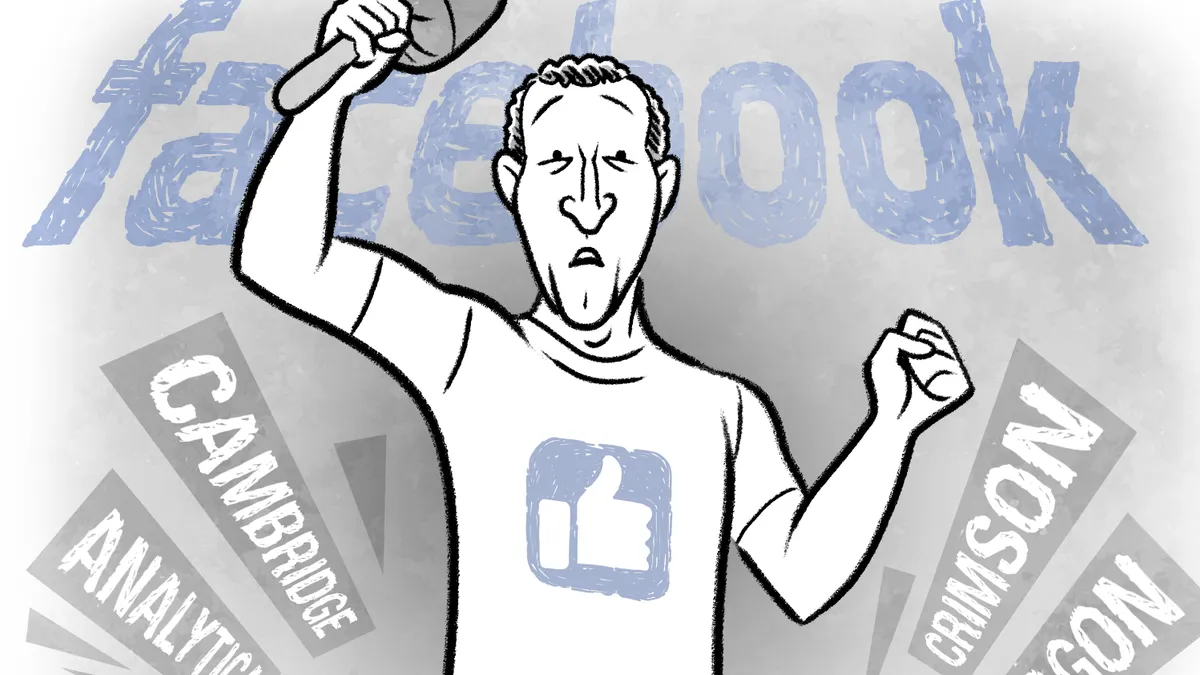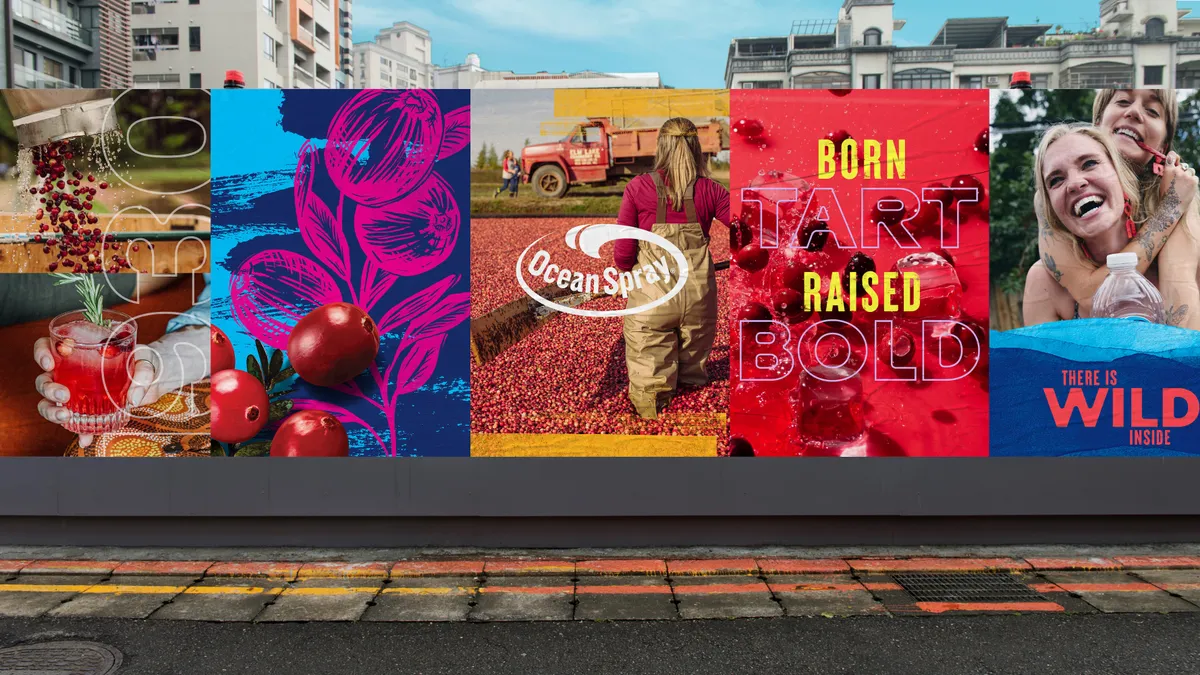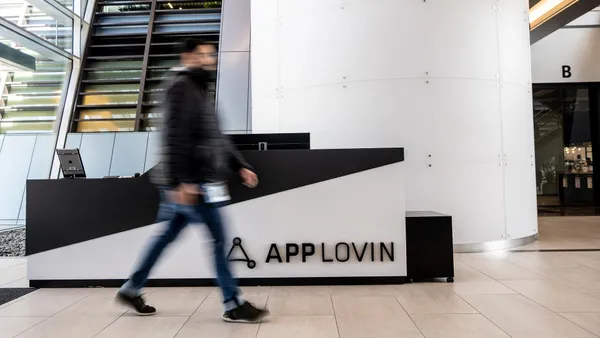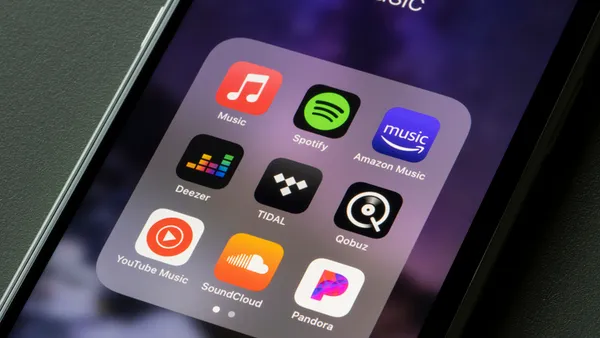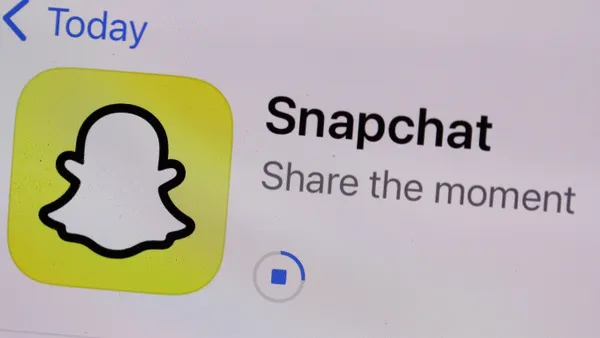Brief:
- Facebook's advertising revenue climbed 28% to $17.4 billion in Q3 from a year earlier, showing little sign that mounting criticism from lawmakers and regulatory agencies has impeded growth for the social media giant.
- Facebook said daily active users (DAUs) had expanded by 9% to 1.62 billion during the quarter from a year earlier, with most of that growth coming outside the U.S., Canada and Europe. Average revenue per user increased 19% to $7.26, bringing total revenue to $17.7 billion. Its profit also rose 19% to $6.1 billion, beating the consensus estimate of $5.47 billion.
- Political issues dominated Facebook's earnings call, such as an antitrust investigation by the Federal Trade Commission. Zuckerberg said that the regulatory agency most likely is focused on Facebook's $1 billion acquisition of Instagram, the image-sharing app that's popular with young adults. He also warned that political pressures may negatively affect the company, while rival Twitter announced that it would ban political advertising from its social network.
Insight:
Facebook's revenue and user growth indicate that its social media and messaging platforms continue to draw advertisers and consumers, although the company's dominance of social media advertising has become a significant liability. This quarter's earnings call had a distinctly political tone, coming a week after CEO Mark Zuckerberg faced withering scrutiny on Capitol Hill. During a five-hour hearing before the House Financial Services Committee, lawmakers hammered the Facebook founder with questions about its cryptocurrency plans and how it handles political advertising, among other issues.
During the earnings call, Zuckerberg said the company didn't have any plans to ban political advertising, as Twitter and TikTok have announced they would do. Political advertising will be highly lucrative, with WPP's ad-buying unit GroupM predicting that campaign spending will surge 57% to $9.9 billion next year from $6.3 billion in 2016. Zuckerberg said political ads make up only 0.5% of its revenue, which bolsters the argument to ban political ads and avoid further criticism about its possible role in swaying voters. Facebook's brand value dropped in the past year amid negative headlines and growing criticism of its market power.
Facebook's 29% growth in ad revenue was in line with its Q2 growth, and exceeded the 17% gain for Google, which is an older company operating in the more mature market of paid internet search. Amazon's estimated 45% gain from a smaller revenue base shows that the e-commerce giant is a growing threat to other digital platforms like Facebook that depend on ad sales.
Facebook continues to innovate and offer a broader range of services that make its apps — including Instagram, Messenger and WhatsApp — more useful to mobile marketers. Instagram this year has added shopping-related services, such as the introduction of a special account called @shop that brings together posts from the app's online merchants. The image-sharing app also added a native checkout feature in March to let shoppers pay for products without leaving Instagram, and later extended the tool. Adidas, H&M, Levi's, Michael Kors and Warby Parker were among the brands that started testing a new Instagram feature to let consumers set reminders for when products are available to buy, according to an Instagram announcement. This month, Facebook released a mobile app called Threads from Instagram that lets people stay in touch with a small group of friends by automatically sharing videos and status updates.


